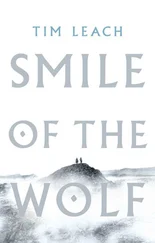As she mounted and pulled the child up behind her, Arite risked a look out to the west, in the half-light of dusk. Shapes moving in the darkness, the swing of a sword, the cry of a dog cut short. The hounds had been there first, waging a hopeless war, but they had held long enough. For there were enough mounted and armed now, and again the horn called – the familiar notes, from a lifetime ago. Form line, prepare to charge. And from the ground, someone passed her a lance. How long it had been since she had held a spear in her hand, but by the way the weapon felt against her palm it could have been but a day since she rode in the warband. Killing, like any practice of the heart, is not forgotten.
They were in the line then – greyhaired women who had not ridden to war in decades, young women who had fought their way from the warband just a few months before and thought to put the spear aside forever. And everywhere there were children mounted in front of their mothers. They did not have enough horses and ponies to mount the children separately, no time to hitch wagon and cart.
The good spears had all gone to the west, and hers was a crude, curving thing without even a true spearhead to it, just a sharpened wooden point. What she could have done with a spear of black iron, she thought. She would make it count for what she could.
‘Do not be afraid,’ Arite said to the child who shivered against her. ‘They will remember us.’ And she was grateful there, at the last, the child was too frightened to question the lie.
For if the raiders were here, the battle on the ice had been lost. There were none left to speak the names and bury the dead, and she felt the last of the fear wash away and be replaced by something else. Not the cold joy of killing, nor the feeling of hatred that is like embers scattered across bare skin. But that reckless longing that comes at the very end of hope, and all about her she could see the signs that the others wore too – the dull glazed eyes, the little half-smile, the gently nodding head. That longing to fight, and join one’s beloved in the dark beyond.
Figures in the darkness, drawing closer. The calling of the horn once more, the rattle of lances dipping down and pointing forward. No time left to speak anything but a name before the charge, and all around her she could hear the whispers as the women spoke, a muttering like prayer as they spoke the names of those that they loved.
‘Bahadur,’ Arite said. And then, just before the charge, she spoke another name. Soft, the barest whisper, as though she were afraid that then, even at the end, Tomyris might hear her.
‘Kai.’
*
In the nameless hours long before dawn, they woke him.
Kai had tumbled through one dream after another, of drowning and smothering, water pressing at his lips and hands closing at his throat. At first, he could not seem to hear their voices – the words came to him deadened, as though he were still under the waters of his dreams. But he followed where they pointed, and on the horizon he saw fire.
Something was burning in the distance, the smoke rising in a great column towards the sky. No funerary or sacrificial fire, but an artless scattering of smaller blazes that had joined together to form something greater.
It was when he looked up for a moment at the stars that he understood. For in this place he had looked on the night sky many times before. Coming back from cattle raids or riding beside a trading caravan, spending one last night under the open skies, reading the stories written in the stars, following the lines of the constellations. And now, as before, they pointed him back towards Iolas, his home.
For that was the cruelty of the steppe – how far one might see on the flat open ground. Disaster could always be seen at a distance, it seemed. He was too far away to see his village, but not too far away to see it burn.
Kai did not move for a time, watched the fire burn. For it was a sacred thing, that fire that took all forms and none. The holy fires of the old ways, where the smoke granted visions. The funeral fires, where a sword plunged into a burning barrow. And with all fires there was one thing they all held in common. They were a place to take oaths.
He looked about the warriors – his warriors – and found them watching him once more, waiting for a command. They had camped that night with a hunger – not for food or warmth, but for memories of the dead, and hope that the living still waited for them beyond the horizon.
That was gone, now. There was a different kind of hunger in their eyes.
The wolfish twitch of the lips, the glitter in the eyes.
They were not of his clan. It was not their kin that lay beyond the horizon. He had been their captain for but a handful of days, and already he knew they would take his feud as their own. That his loss was theirs.
He pointed to the fire in the sky, and there was no need for words. With barely a whisper, they slipped onto the saddles of the horses, and made their way to the east.
*
The fires were long dead when they got to Iolas, killed fast by the winter air. A little smoke still rose, like the aftermath of a harvest festival, or the morning after the great fires with which their people greeted the spring. It was as they drew closer that they saw where that smoke rose from – the burned out huts, the black skeletons of the wagons and carts. And the dead who lay in the fields.
As they approached – no longer hurrying, but idling along listlessly, like shepherds herding in the height of summer – Kai knew that he should have issued commands. To search, scout, gather the dead, to do something. He found that he could not speak. For one never knows quite how much strength one has until one comes to the end of it.
Without his command, the riders drifted through the village, looking for some sign of a survivor, hoping that they might find some building untouched and its people spared. Others circled back around the edge of the village, searching for the dead, and the story that their still lips would speak.
He dismounted, wandered on foot through the ash and snow. The hut he had once called a home was a circle of black ashes, a witch’s circle. He found nothing there, could only let the fine ashes run through his fingers like sand. Nearby, Bahadur and Arite’s hut had not burned fully, but had been cut in half as though by the stroke of some great flaming blade. He pawed through the ashes, searching for some lost relic of the dead. The arrow that had saved Bahadur’s life, the drinking cup they had all shared around the winter fire. He took up the half-burned woven rug that he found, rolled it up and slung it across his horse, for it seemed that he had to take something from that place.
A calling of his name. Tamura, who came towards him, her eyes eagle bright. For she alone seemed not to have been lost to the still madness that had taken the rest of the company.
‘Kai. You have to get them out of here.’ A hesitant hand reached towards his shoulder, but she did not quite touch him. ‘They shall go mad, staring at all this. At you. Get them out.’
He nodded, an uneven tilt of the head like a drunkard. ‘Gather them at the far side of the village. We’ll find what we can and move away.’
‘Come with me?’
Kai shook his head. ‘Not yet,’ he said, for he knew that there was something he still had to see. He made his way out towards the western fields, out to where the dead lay.
There had been few in the village itself. A handful, speared and burned in the huts, or crawling in the paths between them. The sick, it seemed, a few of the truly old, those who had not been able to rise in time. The rest had fought and died on horseback. There was a gathering of them, out in the fields to the west. Horses and women laid on the ground, as though in silent ritual.
Читать дальше
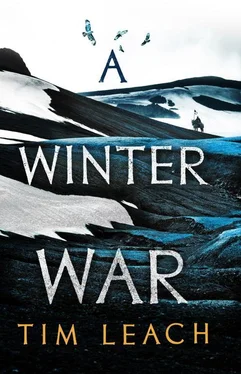
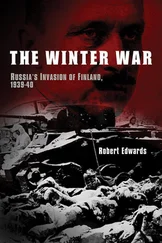

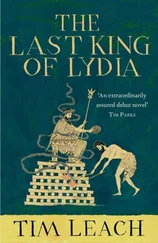
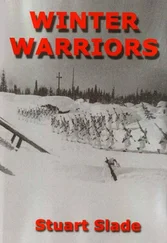
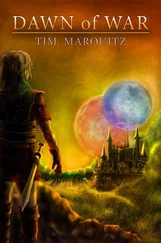

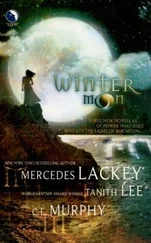
![Стюарт Слейд - Воины зимы [Winter Warriors ru]](/books/401383/styuart-slejd-voiny-zimy-winter-warriors-ru-thumb.webp)
